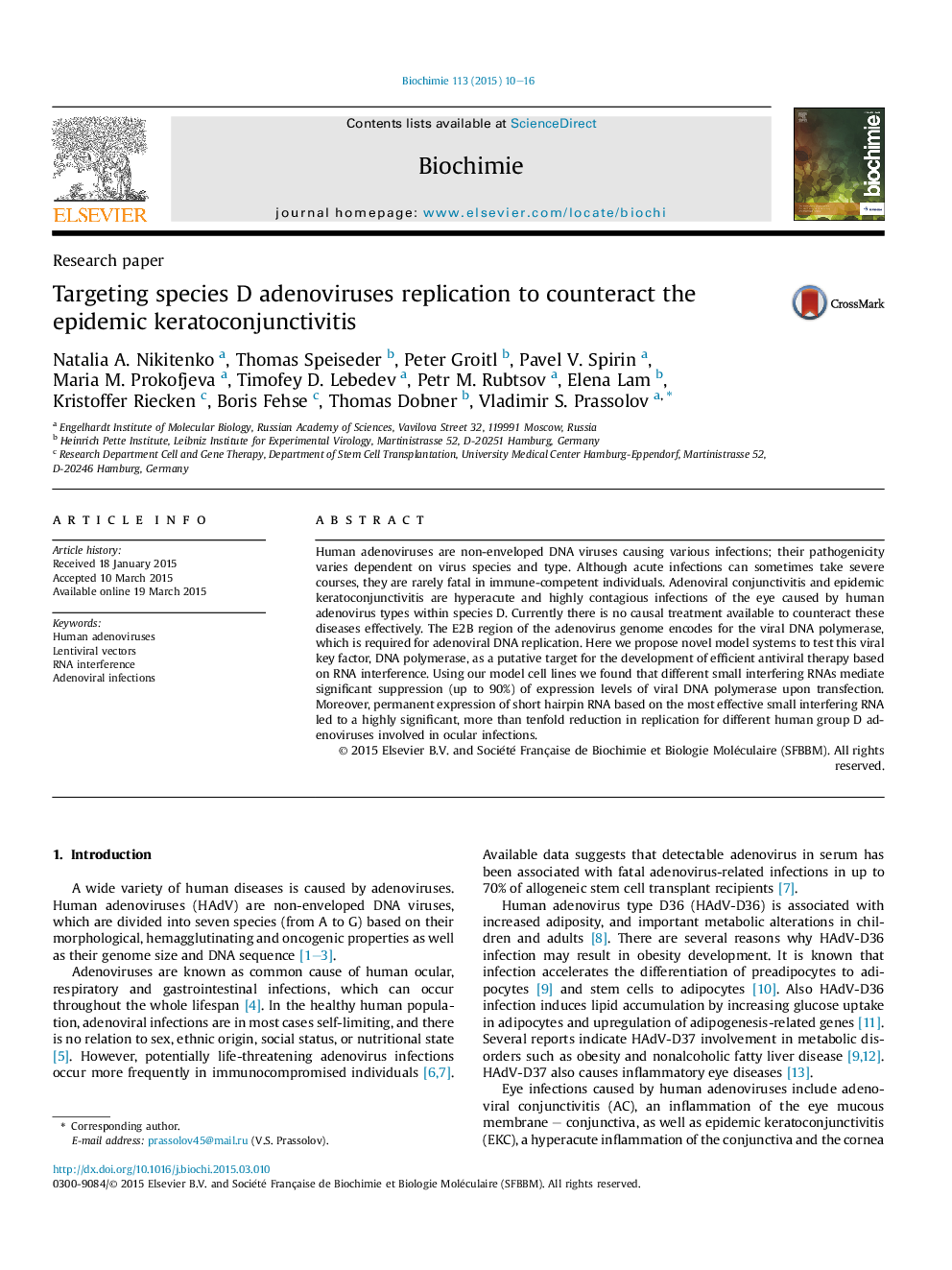| Article ID | Journal | Published Year | Pages | File Type |
|---|---|---|---|---|
| 8304958 | Biochimie | 2015 | 7 Pages |
Abstract
Human adenoviruses are non-enveloped DNA viruses causing various infections; their pathogenicity varies dependent on virus species and type. Although acute infections can sometimes take severe courses, they are rarely fatal in immune-competent individuals. Adenoviral conjunctivitis and epidemic keratoconjunctivitis are hyperacute and highly contagious infections of the eye caused by human adenovirus types within species D. Currently there is no causal treatment available to counteract these diseases effectively. The E2B region of the adenovirus genome encodes for the viral DNA polymerase, which is required for adenoviral DNA replication. Here we propose novel model systems to test this viral key factor, DNA polymerase, as a putative target for the development of efficient antiviral therapy based on RNA interference. Using our model cell lines we found that different small interfering RNAs mediate significant suppression (up to 90%) of expression levels of viral DNA polymerase upon transfection. Moreover, permanent expression of short hairpin RNA based on the most effective small interfering RNA led to a highly significant, more than tenfold reduction in replication for different human group D adenoviruses involved in ocular infections.
Related Topics
Life Sciences
Biochemistry, Genetics and Molecular Biology
Biochemistry
Authors
Natalia A. Nikitenko, Thomas Speiseder, Peter Groitl, Pavel V. Spirin, Maria M. Prokofjeva, Timofey D. Lebedev, Petr M. Rubtsov, Elena Lam, Kristoffer Riecken, Boris Fehse, Thomas Dobner, Vladimir S. Prassolov,
